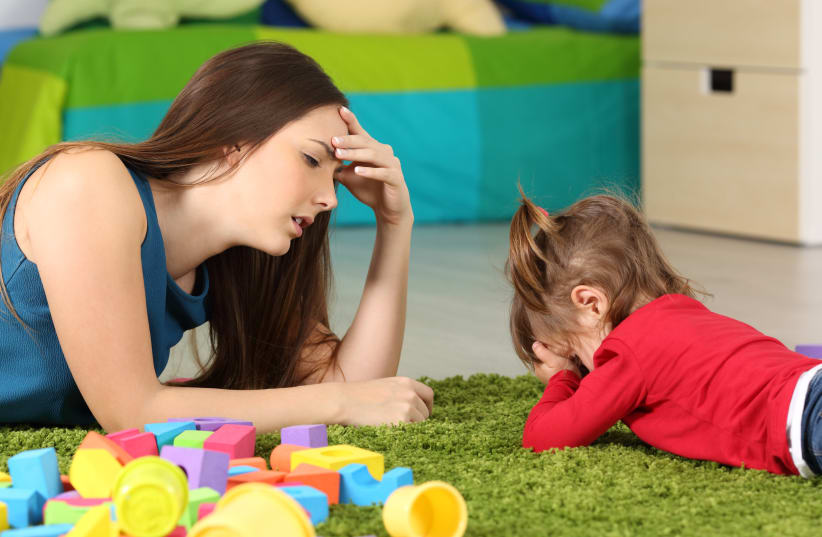A child may drive you crazy, but this parenting tip can give you a different perspective on things and might cause your reaction to completely change.
How many times have you said to a child, "Enough, stop,” but they looked at you and kept doing the exact same thing? Your child climbs on a high table, looks at you and waits for your response that comes quickly: "Come down, it's dangerous," but your kid has a big grin even though they no doubt hear and understand you. Why do they ignore your commands, and why do they continue to act like this?
Dana Hovesh, a certified parent counselor at the Adler Institute and the Education Ministry, clarified some things. From the age of about a year and a half, a wonderful thing happens. The little ones are beginning to discover independence, and they grasp, pull, activate, climb and touch everything that is allowed and also what isn’t. Everything they do at this age contributes to the development of their cognitive and motor ability, and each success helps show a child what they can do, so naturally they want to do the same thing over and over.
Doing different things, they examine the reactions of their environment, so they look at you when they do something new so they can learn the boundaries of the home. So already at this stage, your reactions greatly affect the shaping of your child's personality.
To understand children's behaviors we need to find out the reason for which they’re acting, instead of trying and understanding what the reason is. So, instead of asking "why?" change the question to "For what?” for example: “Why don’t they stop climbing on the table? For what?” Now try to answer the question for yourself and you’ll understand where the child's behavior comes from.
Let’s say someone’s child experimented and climbed on the table. They feel tall and happy that they succeeded. Now they’re also trying to stand on the table. In response, the parent says: "Don’t stand on the table", explain that it’s dangerous, continue to say "but I said it’s forbidden," "Stop," etc. Thanks to the many responses the child has received (you’re the audience for the show on the table), they’ll continue to wait for a similar response. If they again get a similar response of a lot of attention around the event, the behavior will be fixed and they will continue.
Ask again - for what?
Right now, you want to manage the situation. A child doesn’t care if you’re positive or negative, as they already received too much attention. So, now understand that a child isn’t doing the opposite, isn’t acting against you and doesn’t climb on the table to drive you crazy. It’s because now you’re fully paying attention.
And now that you understand, how to respond
Behave in a matter-of-fact, consistent and clear manner. The kid climbed up on the table? Since safety comes first, take them off immediately. Say once, "It’s forbidden to climb on the table" and instead say what’s permitted: "You can climb on the stool.” Each time a child climbs up, bring him down without speaking. The boundary should be clear and consistent, so if when off the table the child starts crying, or is angry or frustrated, calm the child, say you understand, etc. For example, say, "I know it's fun to climb on the table, but I'm worried, it's dangerous," and provide an alternative: "Would you like to help me wash an apple?” When the child realizes that there’s nothing special about the table, they will stop messing with it and move on to the next experiment.
